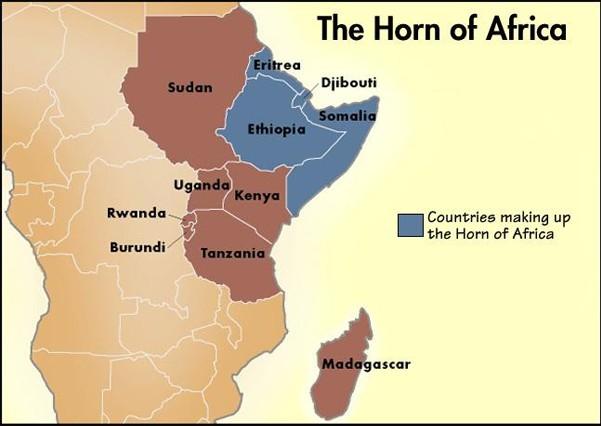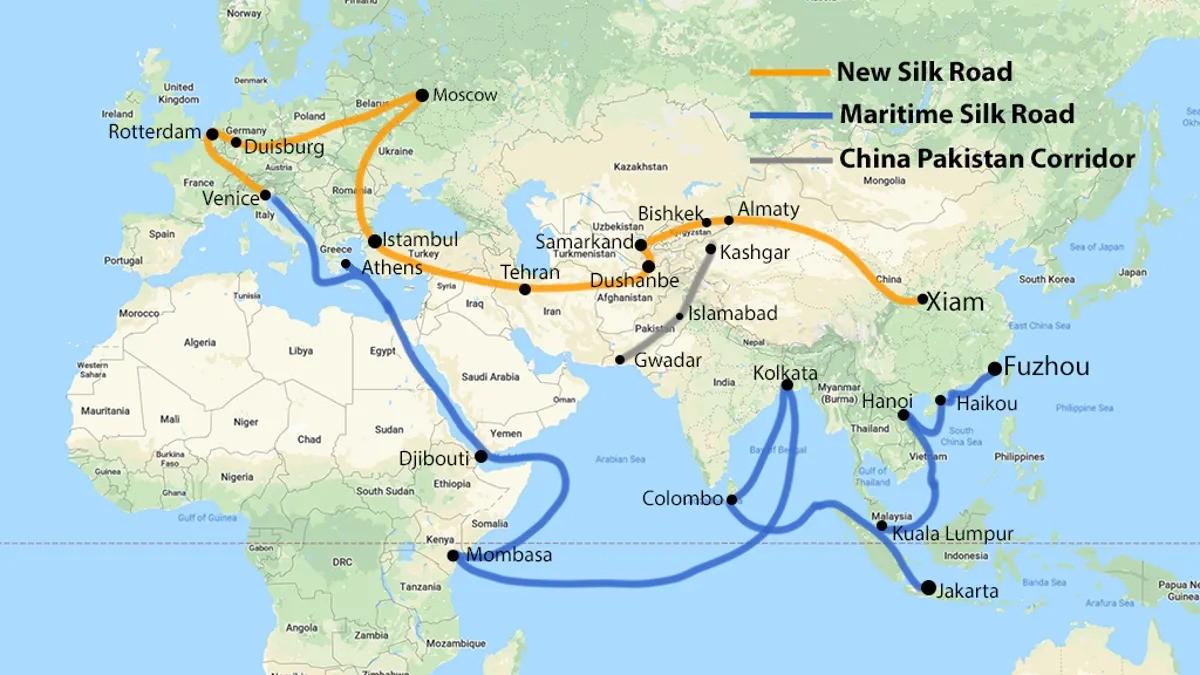Duelling ambitions for the Horn of Africa's resources China vs. UAE
Recently, the United Arab Emirates (UAE) adopted a renewed strategy of boosting soft power in the Horn of Africa. This trend may not come as a surprise. The Horn lies along one of the world’s most important maritime trade routes, connecting Europe and the Mediterranean Sea to the Indian Ocean and Asia. An estimated 10-20% of global trade, including over 6 million barrels of oil per day, reportedly transits through the Red Sea and the Gulf of Aden, right along the Horn’s shores.

The Horn of Africa, long the site of great power competition, today sees a new rivalry playing out on its shores. Gulf Arab countries, China, as well as Türkiye, are accelerating their push for allies and influence in the Horn, such that two of the Middle East's primary political fault lines – between Iran and Arab states.
Therefore, given the importance of the region, the UAE is not the only non-regional actor seeking a permanent presence in the region. China, another global power, has developed strong ties to the region in the last decade, thus establishing a footprint in the region.
Paradoxically, China and the UAE are close partners in the fields of energy, economy, agriculture, and telecommunication, which were cemented by a dozen agreements signed between the two states. For example, in 2021, Beijing and Abu Dhabi embarked on a new partnership in the field of Artificial Intelligence (AI) as leading Chinese companies assisting the UAE in developing AI tools and integrating them with the local governance system. However, the UAE-China AI partnership triggered discontent in the United States (US), the UAE's other strategic ally and partner.

The US is trying to get the UAE to collaborate with American tech companies and distance itself from China in its technological collaborations especially when it comes to AI. As a result, several American tech companies like Microsoft, OpenAI are investing heavily in the region. In April 2024, Microsoft made headlines by announcing a substantial $1.5 billion investment in G42, an AI company based in Abu Dhabi. The deal marks a significant move in its strategic alliance with the UAE.
Nevertheless, the UAE continues its partnership with China and keeps heavily investing in the Horn of Africa, particularly in logistics, maritime ports, and construction fields. Abu Dhabi cultivates a neutral stance between global rivals despite heightened international polarization, trying instead to maximize the economic opportunities enabled by multiple partners. Therefore, the UAE places great emphasis on the connectivity agenda, with massive investments in trade, logistics, and infrastructure.
Since 2021, the UAE has doubled its investment efforts in African port infrastructures. After its first-ever port concession in Africa in Guinea, at Kamsar port, Abu Dhabi Ports Group has signed, since 2022, concession agreements and cooperation deals with Sudan and Tanzania, Angola, and more recently with the Republic of Congo-Brazzaville and Egypt in 2023. Unlike Russia and China, the UAE appears to be a more enthusiastic investor in the Horn of Africa, while other actors lag behind. As such, the UAE became an aggressive player in the region, outplaying China and Russia in terms of infrastructure investments. In this vein, the UAE is the only country that is able to compete with China and Russia in terms of investment amounts.

For both the UAE and China, the Horn of Africa’s relevance derives largely from its geostrategic position along the maritime route that connects the Mediterranean Sea and the Indian Ocean. The geostrategic importance of the region for the UAE seems rational as Abu Dhabi strengthens its footprint not only through infrastructure investments but also through defence/military partnerships. For example, since the 2010s, the UAE has established defence and military relations, especially with regional African states. These agreements enabled Abu Dhabi to run military facilities in unstable countries like Somalia, Puntland, Ethiopia, Chad, Mauritania, Mali, Senegal, Kenya, and Mozambique and contribute to counter-terrorism efforts, namely against the notorious Al-Shabab and Boko Haram radical Islamist terrorist organizations. Hence, on June 2023, the UAE carried out its first kinetic military operation in the country: the Emirati first publicly reported airstrike targeted a village held by jihadists in the Galguduud region with a Turkish-made Bayraktar drone.
The UAE's growing military activities in the Horn of Africa and the Sahel turned it into another target of regional radical Islamist groups and pirates perpetrating frequent attacks on infrastructure and military facilities. In order to tackle and address regional security challenges, the UAE government has been funding and training local police forces in Somaliland, Ethiopia, Angola, and other countries with fragile security. In Ethiopia, for example, the UAE supports the training of the Republican Guard, an elite military unit established in 2018 that is tasked with protecting the prime minister, senior public officials, and major installations in the country. In 2023, Ethiopia and the UAE signed a Memorandum to fight terrorism.

As for China, the Horn of Africa region is important for Beijing as a key hub in its broader connectivity strategy. Over the last decade, and especially after the official launch of the Belt and Road Initiative (BRI) in 2013, China has significantly increased its efforts to improve connectivity across Asia, Europe and Africa. Such an attitude paved the way for the greater influence of China in the region, which is now challenged by the UAE.
The two countries have different interests and levels of engagement in the region. The UAE is keen on fostering its program of economic diversification and boosting its global standing as a key global actor, while China is willing to establish sustainable control over infrastructure-led projects in the region due to its interests in natural resources in the Horn and Red Sea regions.








